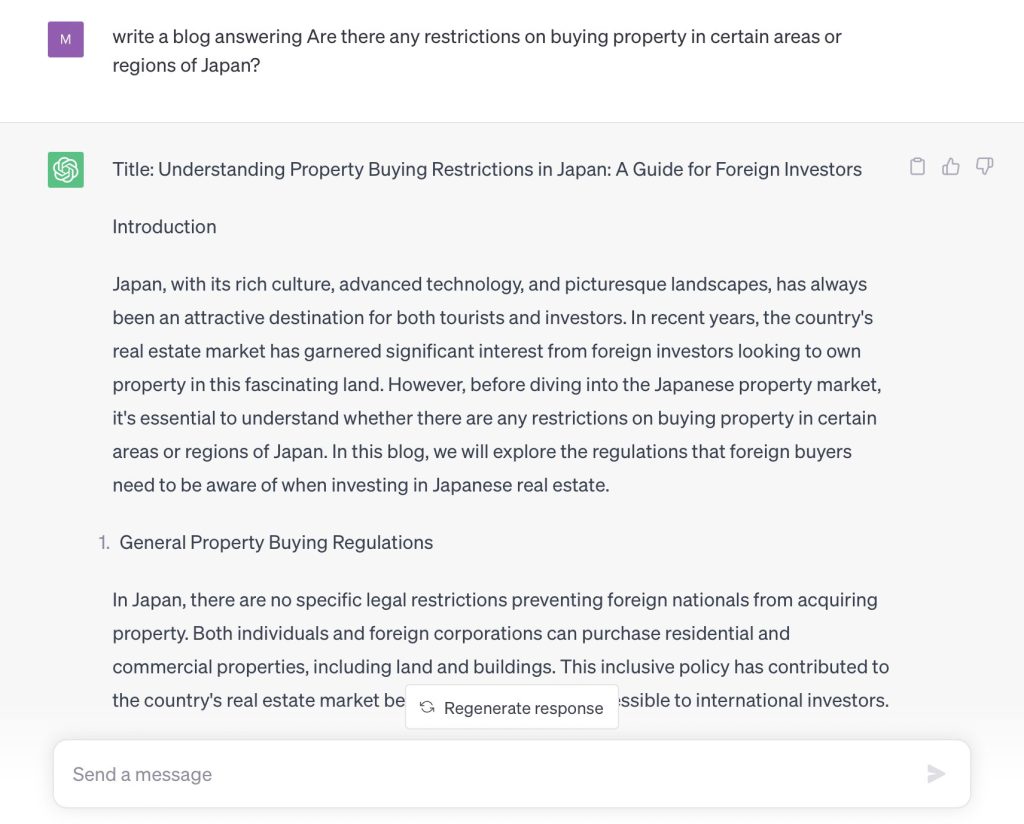
Japan, with its rich culture, advanced technology, and picturesque landscapes, has always been an attractive destination for both tourists and investors. In recent years, the country’s real estate market has garnered significant interest from foreign investors looking to own property in this fascinating land. However, before diving into the Japanese property market, it’s essential to understand whether there are any restrictions on buying property in certain areas or regions of Japan. In this blog, we will explore the regulations that foreign buyers need to be aware of when investing in Japanese real estate.
General Property Buying Regulations
In Japan, there are no specific legal restrictions preventing foreign nationals from acquiring property. Both individuals and foreign corporations can purchase residential and commercial properties, including land and buildings. This inclusive policy has contributed to the country’s real estate market becoming increasingly accessible to international investors.
Agricultural Land Restrictions
While most types of properties are open to foreign investors, there are some restrictions concerning agricultural land. Under the Agricultural Land Act, foreign individuals and foreign corporations cannot acquire agricultural land without permission from the local government. This restriction aims to preserve agricultural land for domestic farmers and food security purposes.
However, there are exceptions to this rule. If you wish to purchase agricultural land, there are certain conditions that, if met, can lead to obtaining permission. These conditions include engaging in farming activities or having specific family connections to Japanese citizens.
National Security and Defense Zones
Foreign investors should be aware of regulations surrounding certain areas in Japan due to national security and defense concerns. Some properties located near military bases or sensitive installations may require additional permissions or face limitations on ownership, primarily to safeguard national interests.
Urban Planning Regulations
Japan has stringent urban planning regulations, especially in densely populated cities like Tokyo. These regulations dictate building heights, land usage, and zoning restrictions. As a foreign investor, you’ll need to adhere to these guidelines to ensure compliance and successful property acquisition.
Conservation Areas
Japan boasts breathtaking natural landscapes and historical sites. To protect these valuable areas, there may be restrictions on constructing new buildings or extensively renovating existing structures. Foreign investors should be mindful of preservation and conservation rules before investing in properties located in these regions.
Residential Property and Second Homes
Foreigners can buy residential properties for personal use or as investment assets. There are no specific restrictions on purchasing condominiums, houses, or apartments, making them popular choices for international buyers. However, investors should keep in mind that some residential areas may have rules set by homeowner associations or local governments that could impact property usage and renovation plans.
Conclusion
In conclusion, Japan offers an attractive real estate market for foreign investors, with minimal restrictions on buying property in most areas. However, before making any investment decisions, it’s crucial to familiarize yourself with local regulations and understand potential limitations. Ensure that you engage a reliable local real estate agent or legal advisor to guide you through the process and make your investment in Japan’s property market a successful and fulfilling one. Happy investing!
Please note that the information provided in this blog is based on the knowledge available up to September 2021. For the most current and accurate information, it is essential to consult official sources and legal experts in Japan.

If you or anyone looking to purchase property in Japan, please don’t hesitate to contact us.
For additional information or any questions please contact us here
Email: info@remax-apex.com

